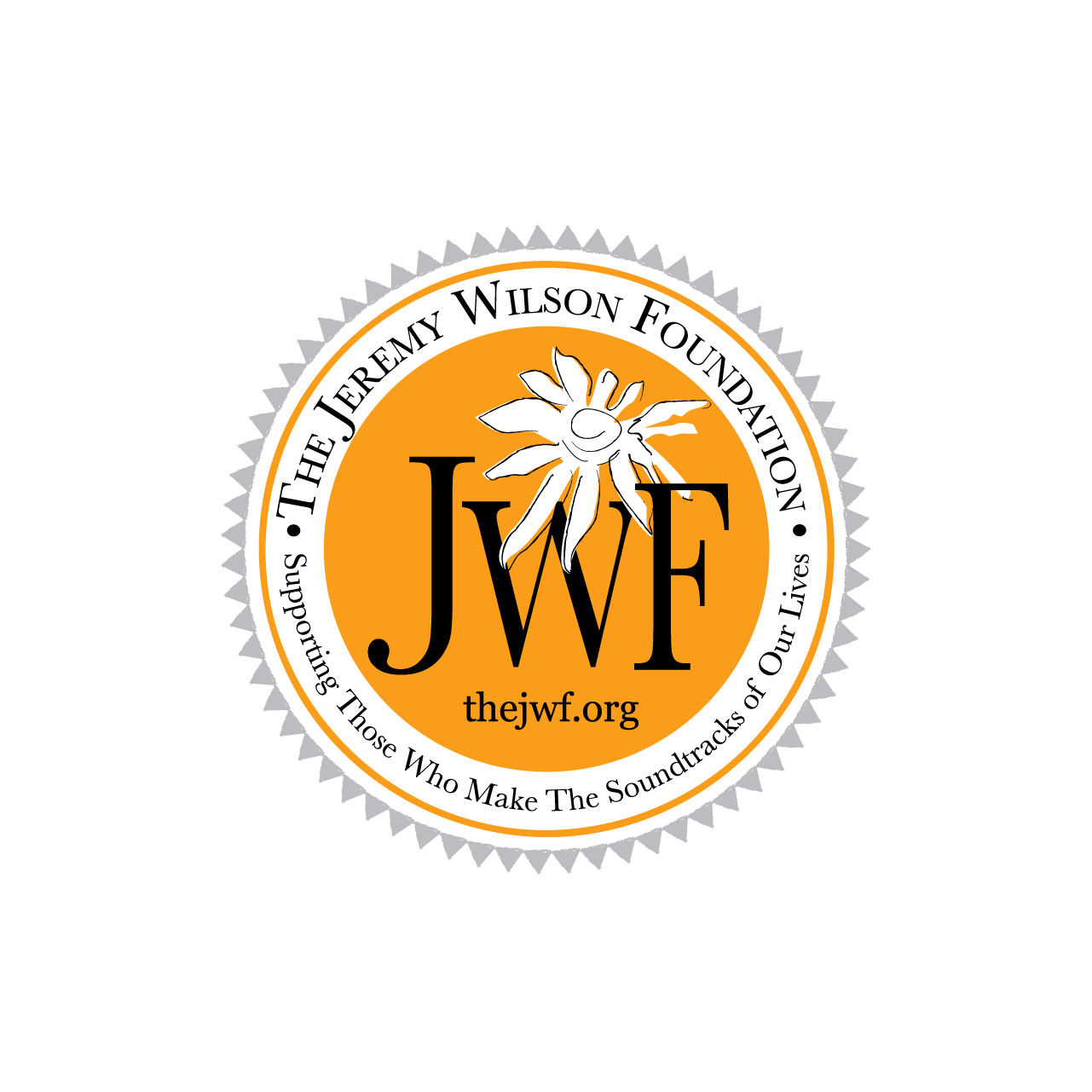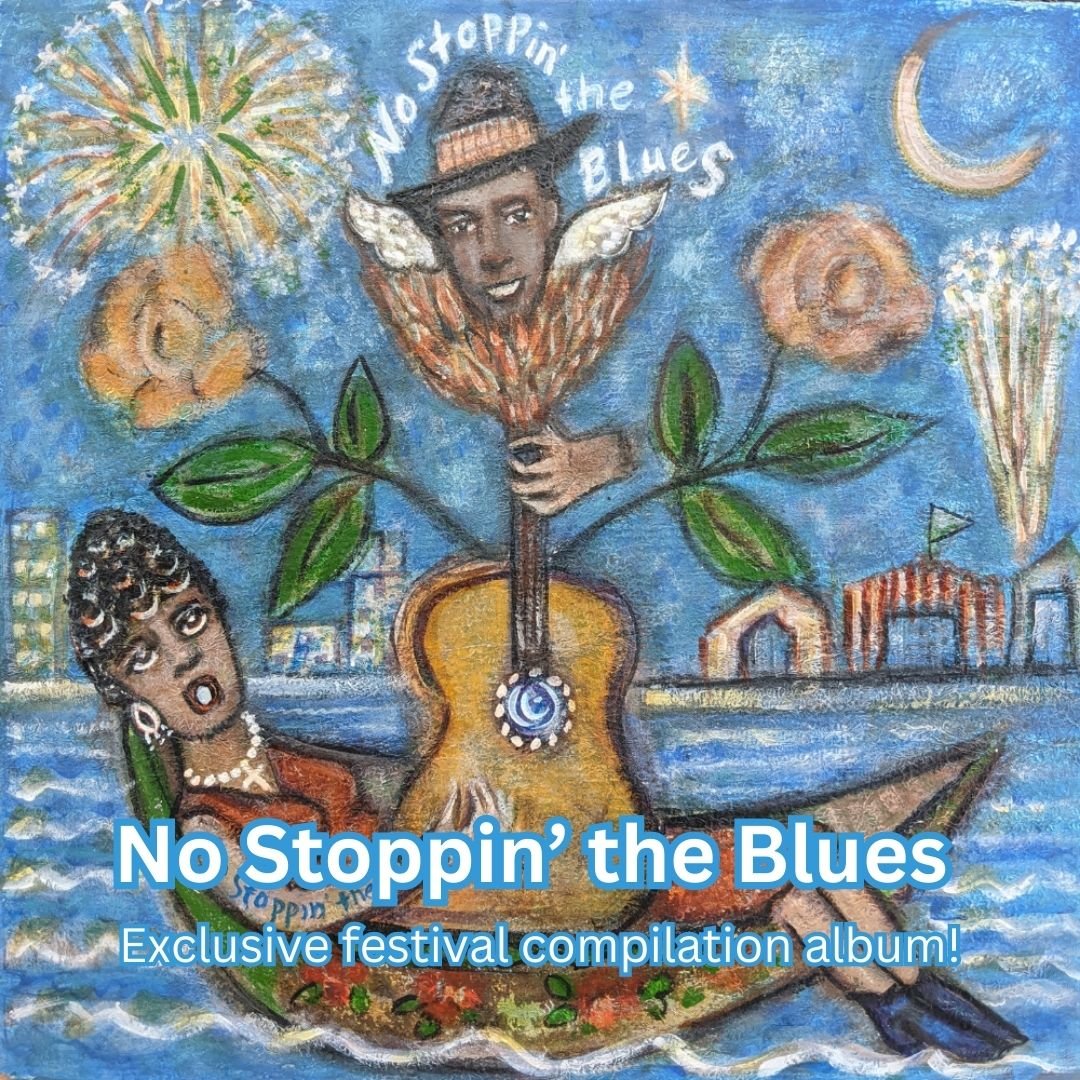Tevis Hodge Jr. finds musical inspiration in past centuries
Photo by Norm Eder
With mentors ranging from his mom, Melody, to Baby Gramps, Ural Thomas and Norman Sylvester, Tevis’s performances span the history of blues from the earliest country styles to electric. By Claire Levine
Spending time with his dad’s family in Virginia, Tevis Hodge, Jr., was surrounded by the blues – mostly the contemporary styles of the time. But it was first in Utah, then in Portland, that Tevis started a serious study of the blues, its history, evolution and techniques.
Tevis’s mother, Melody, was a singer/songwriter who played guitar. She always encouraged his interest in music, and he started playing guitar at age six. She also supported his musical curiosity.
“My father, Michael Tevis Hodge, passed away when I was 10 years old. Playing music – and focusing on blues especially -- helped me feel closer to him and to his side of the family, which had originally introduced me to southern Black cultural traditions.”
By age 12, he already owned recordings of Mississippi John Hurt from the sixties and Blind Lemon Jefferson from as far back as the twenties. After they moved to Portland from Utah when Tevis was 15, mom and son explored local record stores, including the remarkable Music Millennium, looking for whatever interesting music they could find. And Tevis gravitated toward the earliest blues recordings he could find.
A seven-part film series produced by Martin Scorsese introduced him to musicians he hadn’t been aware of while strengthening his understanding of the blues’ history and context.
Tevis spent his adolescent and teen years learning the complex techniques of fingerpicking and slide guitar – teaching himself while listening to whatever recorded material he could get his hands on. He was performing in school talent shows, at open mics and on the street, as much as he could. By the time he was 18, he had worked his way into a steady coffee-shop gig on Portland’s Alberta St.
One of the first musicians Tevis saw when he was old enough to visit the bars – and one who was to have a major influence on Tevis’ music – was Baby Gramps. The iconic and whimsical Baby Gramps uses a unique playing style on his National Guitar, playing and singing country blues, ragtime, vaudeville tunes, and throws in some throat singing while he’s at it.
“He became a really big inspiration to me,” Tevis said, “musically and otherwise. . . and in just a couple of years, I would be playing with him at the Laurelthirst, which I did for eight or nine years in a row.”
Tevis said, “A lot of people would credit Baby Gramps as being the last true vaudeville legend. . . He does do a lot of blues, and back then I first saw him play some of the stuff that really excited me,” like tunes by Charlie Patton and Robert Johnson and Pink Anderson and Frank Stokes, “and all these old blues players.”
While Tevis was already an accomplished blues player by that time, he was able to get some lessons from Baby Gramps, “who is a really, really good finger picker.”
Ural Thomas was another important influence for Tevis. Ural began singing professionally as a young man, and for many years he played venues like the Apollo Theater, opening for or playing with such iconic figures as Etta James, Otis Redding and Stevie Wonder. In 1968 he returned to Portland, where he had spent his childhood. For several decades, he rarely performed anywhere but in his backyard at weekly jam sessions. Forty years later, local promoters encouraged him to form a band and take his music public again. Tevis has played with Ural both on stage and at his backyard gatherings.
Tevis continues to explore all the variations of the blues. “City blues is its own unique style, and I play a bit of that . . . it’s more sophisticated. And I play slide blues guitar, which for me comes from Delta blues styles. But then there are Piedmont blues, Georgia blues . . . And I will play ragtime sometimes, and a whole slew of music that revolves around that,” including what some call jug band or medicine show tunes.
Tevis also plays five-string and tenor banjos. “It’s all kind of one big world, and everybody’s definition of what blues might be is different. But I do most of the styles in traditional African American music,” that reaches back before the 1880s.
Tevis does a lot of solo performances, showcasing all his instrumental abilities. He also fronts the Tevis Hodge Trio, the group that performed at the 2023 Waterfront Blues Festival. You can hear him at Rose City Coffee, the Oakshire Brewing Public House and the Spare Room. He often sits in with other top Portland musicians, like Ben Rice, Jimmy Russell and Norman Sylvester (who, Tevis said, “is definitely another person I think of as a mentor.”)
In 2014, Ben and Tevis went to the International Blues Challenge in Memphis, where Tevis was a solo semi-finalist.
This summer, Tevis contributed an original song, “Sweet Road Blues” to No Stoppin’ the Blues, a compilation of music from performers at the Waterfront Blues Festival. The collection supports the Jeremy Wilson Foundation’s Musician Health and Services Program.
His participation reflects his deep-seated connection to Portland’s music community and his awareness of what musicians sacrifice for their art – and the enjoyment of others. If there had been any question that most Portland musicians exist without a safety net, the pandemic thoroughly eliminated that doubt.
Jeremy Wilson & Tevis Hodge
Waterfront Blues Festival 2023
“I think things like the Jeremy Wilson Foundation are what makes the world go around – especially for artists. Our artists have a hard time making a living and doing what we all love,” so he sees the foundation’s work as a way to help the music survive.
“And it’s a really good thing to support artists directly, if you can. You can even give us a donation anonymously, which happened to me a few weeks ago – and I was really thankful for that,” he said.
“We’ll see you out there in the fields!”
No Stoppin' the Blues!
Celebrating fifteen Oregon-based artists and bands performing at the 36th annual Portland Waterfront Blues Festival, this compilation album is available exclusively through the JWF and features many never-before-released tracks! The artists have generously donated these songs, which means all proceeds from album sales go directly to the JWF Musician Health & Services Program.
Download the album now to hear songs from Ural Thomas & The Pain, Terry Robb, Mary Flower, Lloyd Jones, Andrew Matthews Band, Jujuba, Bayou Boyz, River City Riot! Brass Band, Soul Vaccination, The Strange Tones, Tevis Hodge Jr., Northwest Bone Gang, Sister Mercy, Rae Gordon & Friends, and Johnny Wheels & the Swamp Donkeys. Available only at JWFmusic.org




